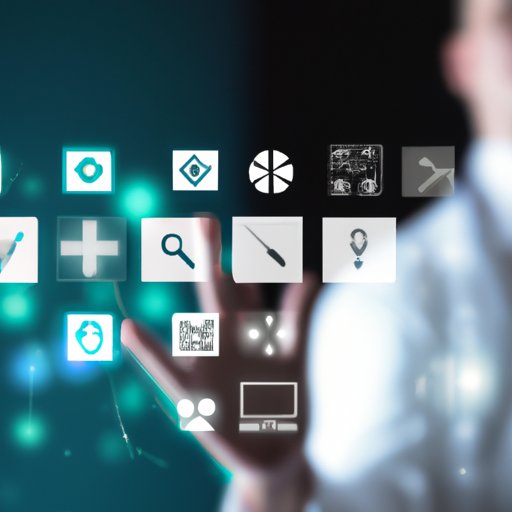Introduction
Health informatics is a rapidly growing field that combines the power of technology with healthcare. It is the intersection of information science, computer science, and healthcare, and is used to improve the quality, safety, and efficiency of healthcare delivery. By leveraging the latest technologies and data-driven insights, health informatics can help healthcare organizations provide better care for their patients.
The goal of health informatics is to improve patient outcomes through better management of data, improved processes, and increased efficiency. Through the use of health informatics, healthcare providers are able to make more informed decisions, streamline processes, and reduce costs. This makes health informatics an essential part of modern healthcare.

Exploring the Role of Health Informatics in Clinical Decision Making
Understanding the basics of health informatics is key to understanding how it can be used to improve healthcare. Health informatics enables healthcare providers to collect and analyze large amounts of data quickly and accurately. The data is then used to identify trends, inform decisions, and track progress. This helps healthcare providers make more informed decisions, which can lead to better patient outcomes.
Harnessing the power of technology in healthcare is also essential. Technologies such as Electronic Medical Records (EMRs), telemedicine, and wearable devices are all helping to improve the quality of care delivered. By using these technologies, healthcare providers can access and store data more easily, allowing them to make faster and more accurate diagnoses. This can lead to improved patient outcomes and reduced costs.
Analyzing the Impact of Health Informatics on Population Health
Health informatics has the potential to revolutionize population health. By collecting, analyzing, and sharing data, healthcare providers can gain a better understanding of the health of their communities. This can inform public health initiatives, such as disease prevention or immunization programs, and help healthcare providers target resources where they are needed most.
Analyzing the impact of health informatics on population health is essential to ensure that healthcare providers are providing the best possible care. By understanding the needs of their communities, healthcare providers can tailor their services to meet those needs. This can lead to improved health outcomes and reduced costs.
Conclusion
In conclusion, health informatics is a rapidly growing field that uses the power of technology to improve healthcare. It enables healthcare providers to make more informed decisions, streamline processes, and reduce costs. It also has the potential to revolutionize population health by providing insight into the health of communities. By understanding the basics of health informatics and harnessing the power of technology, healthcare providers can provide better care for their patients.
Health informatics has the potential to improve patient outcomes and reduce costs. It is an essential part of modern healthcare, and should be integrated into patient care. By doing so, healthcare providers can ensure that they are providing the best possible care for their patients.
(Note: Is this article not meeting your expectations? Do you have knowledge or insights to share? Unlock new opportunities and expand your reach by joining our authors team. Click Registration to join us and share your expertise with our readers.)
